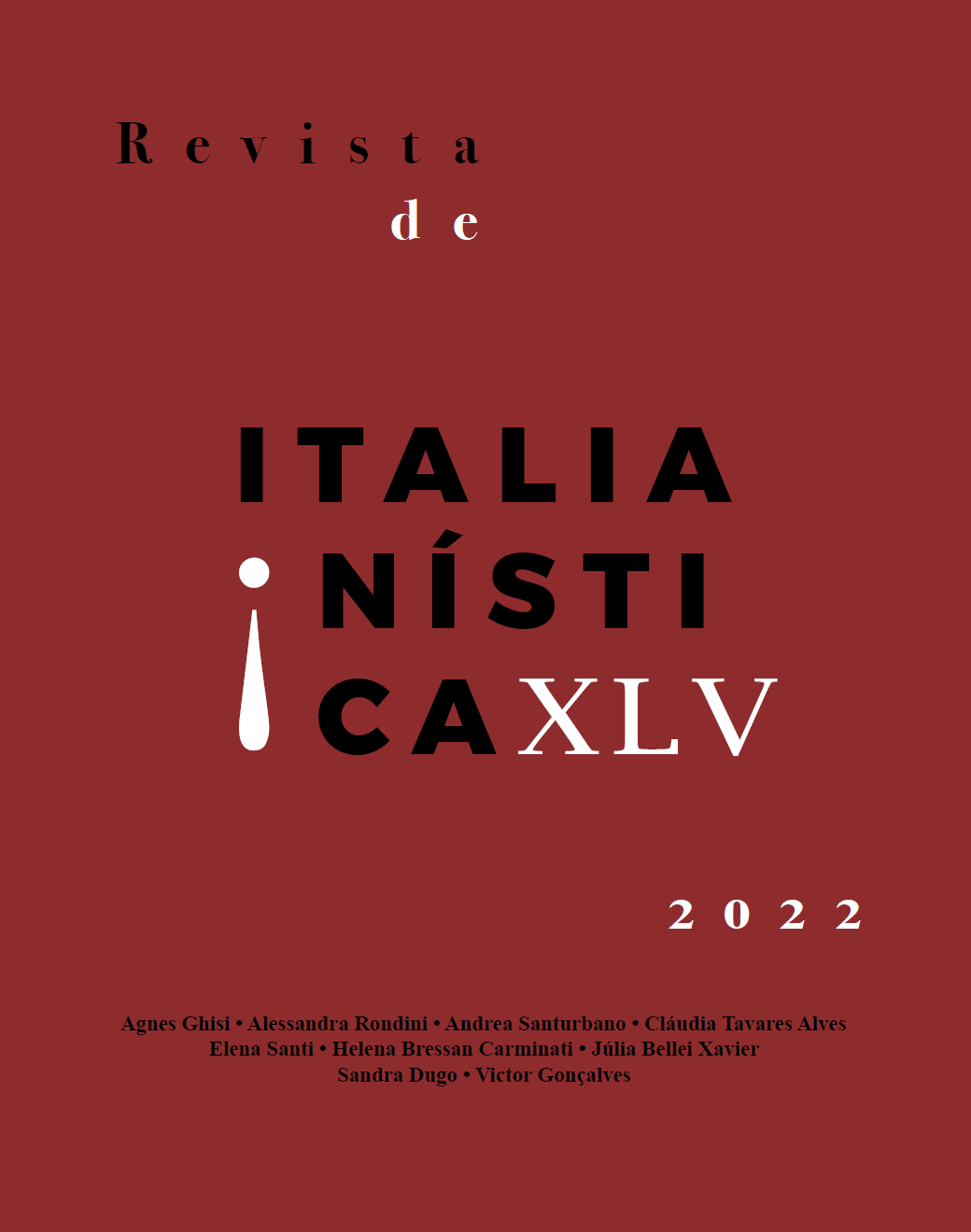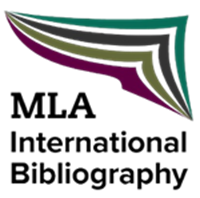O livro traduzido como livro-corpo
DOI:
https://doi.org/10.11606/issn.2238-8281.i45p4-23Palavras-chave:
Literatura brasileira nordestina, Anos Trinta, Tradução italiana, Livro-corpoResumo
O texto apresenta-se como um corpo, que é plasmado pelo ambiente cultural do qual ele é a expressão e que traz a impressão de quem o cria. A tradução é uma viagem, entre mundos, experiências de sentido, interpretações, diferentes. No momento em que vive esta experiência, uma espécie de migração na direção de um outro universo de significado, o livro-corpo deve vivenciar um processo de inclusão, num mundo novo, que também pode não o aceitar pelo que ele é e marcá-lo, tentar torná-lo semelhante ao que é conhecido, então tranquilizador. Intervenções no livro-corpo comparáveis a certos signos rituais, que marcam uma passagem, tatuagens que podem adicionar alguma coisa interessante, mas que às vezes são verdadeiras cicatrizes, que o ferem profundamente. Poder-se-ia falar de manipulação do livro-corpo, do qual os vários paratextos são sim suas partes, de releituras e reescrituras que algumas vezes podem levar a resultados satisfatórios, outras desanimadores. Os romances dos anos 30 de Jorge Amado, Graciliano Ramos e José Lins do Rego passaram por esse rito de passagem quando foram traduzidos em italiano. Alguns rastros ficam mais escondidos e é mais difícil identificá-los à primeira vista, pode ser necessário um relacionamento mais íntimo entre o observador e o corpo que o traz; outros, pelo contrário, podem ser percebidos num primeiro olhar.
Downloads
Referências
AMADO, J. Cacao. Trad. D. Ferioli. Torino: Einaudi, 1998.
AMADO, J. Capitães da Areia. Rio de Janeiro: Editora Record, 1994.
AMADO, J. Capitani della spiaggia. Trad. E. Grechi. Milano: Garzanti, 1988.
AMADO, J. Capitani della spiaggia. Trad. E. Grechi. Milano: Garzanti Elefanti, 1997.
AMADO J. Capitani della spiaggia. Trad. E. Grechi. Milano: Garzanti Elefanti, 1999.
AMADO J. Capitani della spiaggia. Trad. E. Grechi. Milano: Nuova Biblioteca Garzanti, 2007.
AMADO, J. I banditi del porto. Trad. D. Puccini. Roma: Edizioni di cultura sociale, 1952.
AMADO, J. Il paese del Carnevale. Trad. E. Grechi. Milano: TEA, 1998.
AMADO, J. Il Paese del Carnevale. Trad. E. Grechi. Milano: Garzanti Elefanti 2002.
AMADO, J. Jubiabá. Trad. D. Puccini e E. Califano. Torino: Einaudi, 1952.
AMADO, J. Jubiabá. Trad. D. Puccini e E. Califano. Torino: Einaudi, 1992.
AMADO, J. Jubiabá. Trad. D. Puccini e E. Califano. Torino: Einaudi, 2006.
AMADO, J. Mare di morte. Trad. L. Bonacini. Roma: Editori Riuniti, 1958.
AMADO, J. Mar morto. Trad. L. Bonacini Seppilli. Milano: Mondadori, 1985.
AMADO, J. Mar morto. Trad. L. Bonacini Seppilli. Milano: Mondadori, 1997.
AMADO, J. Mar morto. Trad. L. Bonacini Seppilli. Milano: Mondadori, 1999.
AMADO, J. Mar morto. Trad. L. Bonacini Seppilli. Milano: Mondadori, 2001.
AMADO, J. Sudore. Trad. C. M. Valentinetti. Milano: Mondadori, 1985.
AMADO, J. Sudore. Trad. C. M. Valentinetti. Milano: Mondadori, 1999.
AMADO, J. Sudore. Trad. D. Ferioli. Torino: Einaudi, 1999.
BENJAMIN, W. Il compito del traduttore (1920). Trad. G. Bonola. In: NERGAARD, S. (a cura di) La teoria della traduzione nella storia. Milano: Strumenti Bompiani, 2009, pp. 221- 236.
BORUTTI, S. HEIDMANN, U. La Babele in cui viviamo. Traduzioni, riscritture, culture. Torino: Bollati Boringhieri, 2012.
CAPRONI, G. Prose critiche, volume primo 1934-1957. SCARPA, R. (a cura di). Torino: Nino Aragno Editore, 2012.
DE ARAÚJO CALDAS, S. R. Gabriela, Baiana de Todas as Cores. As imagens das capas e suas influências culturais. Salvador: EDUFBA, 2009.
DERRIDA, J. Mal d’archivio. Un’impressione freudiana. Napoli: Filema edizioni, 2005.
FOUCAULT, M. L’archeologia del sapere. Una metodologia per la storia della cultura. Milano: BUR Rizzoli saggi, 2013.
GENETTE, G. Soglie. I dintorni del testo. CEDERNA, C. M. (a cura di). Torino, Einaudi, 1989.
LEBENSZTAYN, I. “Graciliano Ramos, por Otto Maria Carpeaux:120 anos, homenagem em dobro”. In Estudos avançados, vol. 26 no. 76 São Paulo, set./dez. 2012, pp. 237-242. Disponibile in: http://dx.doi.org/10.1590/S0103-40142012000300023. Accesso effettuato il 29 mar. 2017.
LEFEVERE, A. Traduzione e riscrittura. La manipolazione della fama letteraria. Trad. S. Campanini. Torino: UTET, 1998.
MAGNUM PHOTOS. Disponibile in: https://www.magnumphotos.com/photographer/miguel-rio-branco/. Accesso effettuato il 28 nov. 2017.
LINS DO REGO, J. Il treno di Recife. Trad. A. Tabucchi. Milano: Longanesi & C., 1974.
LINS DO REGO, J. Menino de engenho. Rio de Janeiro: José Olympio Editora, 82° edizione, 2001.
RAMOS, G. Siccità. Trad. E. Bizzarri. Milano: Nuova Accademia, 1963.
RAMOS, G. Terra bruciata. Trad. E. Bizzarri. Milano: Nuova Accademia, 1961.
RAMOS G. Vidas secas. Brasilia: Confraria dos Bibliófilos do Brasil, 2000.
RAMOS G. Vidas secas. Disponibile in: http://profmaryestevo.blogspot.it/. Accesso effettuato il 20 ago. 2013.
RAMOS, G. Vite secche. Trad. E. Bizzarri. CIACCHI A. (a cura di). Roma: Biblioteca del Vascello, 1993.
RAMOS, G. Vite secche. Trad. E. Bizzarri. CIACCHI A. (a cura di). Roma: Robin Edizioni, Biblioteca del Vascello, 2001.
REMOTTI, F. Prima lezione di Antropologia. Roma Bari: Laterza, 2000.
Downloads
Publicado
Edição
Seção
Licença
Copyright (c) 2022 Revista de Italianística

Este trabalho está licenciado sob uma licença Creative Commons Attribution-NonCommercial-NoDerivatives 4.0 International License.
A revista retém os direitos patrimoniais dos artigos e os publica simultâneamente sob uma Licença Creative Commons-Atribuição-Não Comercial-Sem Derivações.










